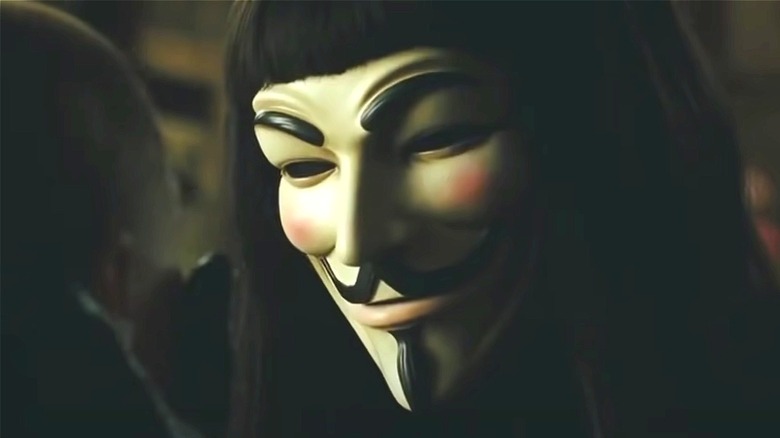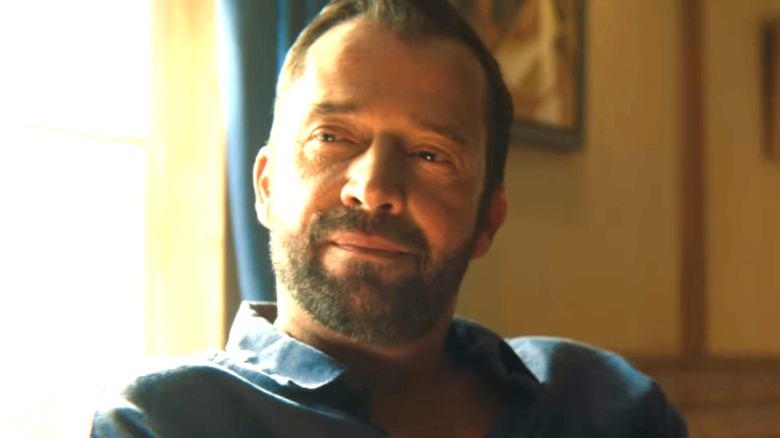How V From V For Vendetta Was Supposed To Be Completely Different
There are several comic book movies that, while not held in as high regard as those stamped with either a superhero symbol or bent on world-building, still deliver a story that earns plenty of love from the fans. "V for Vendetta," while not necessarily favored by the original comic book writer, Alan Moore, is one of director James McTeigue's most popular entries in his filmography, and it paints a bleak but brilliant picture of England in the not-too-distant future. It's a job that was likely made a little easier with the Wachowskis writing the screenplay and lending a helping hand as producers to deliver the final product (via IMDb).
That's not to say that the journey of getting there wasn't without its setbacks. Among its brilliantly executed Orwellian perspectives and unsettling imagery of a world being ruled, there is one core character in this story that almost looked — or rather, sounded — very different. While fans of "V for Vendetta" are familiar with Hugo Weaving's deep and easily-identifiable voice behind the mask, a different actor was initially cast in the role.
Hugo Weaving took over from James Purefoy in V for Vendetta
As is the case for some films, cast members don't quite fit the part they've been given, and for "V for Vendetta," the issue arose with the titular man himself. Originally, Natalie Portman was going to star opposite James Purefoy (who you've probably seen in projects like "The Following" and "Sex Education"), who was down to play the masked menace bringing an end to the government power crippling the country. Unfortunately, after three weeks of filming, Purefoy left the film over the classic issue of "creative differences."
According to James McTeigue, who spoke to SyFy, "[Purefoy] wasn't comfortable in the mask. It was hard for him to make peace with the mask." As a result, the Wachowskis likely had to work damage control, calling up "The Matrix" star Hugo Weaving to see if he was available. Thankfully, he was, and the monotonous tone of his antagonist Agent Smith was given a bit of life and a mask to match. While it's a shame that we couldn't see Purefoy's version of the character, the switch led to a brilliant performance from Weaving, hiding behind a mask that would become iconic after its big-screen debut.

